Curly-coated (rexed) Maine Coons
The go-to book on cat genetics calls them 'rex mutants' or 'rexoid mutants'. Sounds like an alien creature. They are referring to cats with curly coats due to the presence of an inherited genetic mutation. There are some well-known rex cat breeds such as the Selkirk Rex (cat in sheep's clothes) and Cornish Rex. There are others. Surprisingly the Maine Coon can also have a curly coat as the book I mention, Robinson's Genetics for Cat Breeders and Veterinarians, states, "Rexed kittens with a recessive mechanism of inheritance have also been reported in the Maine Coon and colorpoint longhair (Himalayan)."
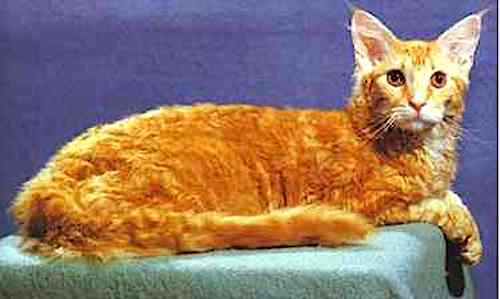 |
| Rexed Maine Coon. Picture in public domain. This is not a good picture in terms of quality but this is unsurprising as photos of this cat are exceedingly rare. |
The go-to website for information about rexed cats is Sarah Hartwell's messybeast.com as she is the best qualified in the UK (the world?) on cat genetics.
She mentions that curly-coated Maine Coon kittens emerged in breeding lines in the 1980s. They were called 'Maine Waves'. A bit pretentious, I'd say.
Rejected by the cat fancy
They were controversial and perhaps a bit shocking to some as the cat fancy is set it is ways and conservative. And also, inflexible. They occurred in the UK apparently. The kittens' fur was 'fine, frizzy and crinkled'.
The parents who produced them were often rapidly sterilised ('culled' from breeding lines) despite interest in them from some quarters. Tests concluded that the mutant gene was recessive or incompletely dominant.
Some people believed that the rexed kittens were the result of deliberate cross-breeding with Cornish Rex cats. But my understanding is that the mutant gene, being recessive, was there all along and its presence was made apparent by inbreeding which is typical of cat breeders to fix the appearance of their cats.
This 'undesirable' or 'deleterious' gene was outlawed and in the 1990s it was decided to 'neuter male carriers (no test mattings allowed) and restrict female carriers. Due to the use of undetected carriers in several breeding lines, the recessive 'taint' will persist, hidden, in the breed. It will skip generations, only to resurface by chance years later' (Sarah Hartwell).
If the rexed Maine Coon had been registered by a UK cat association it would have been as a 'Maine Coon New Variety' and not as a new breed as the rexed MC would be 100% Maine Coon.
Apparently 1 in 200 Maine Coons born are rexed. The statistic is taken from around 4,000 registered Maine Coons of which 20 are rexed.
Also, there was a myth circulating at the time that the mutated gene was lethal. All-in-all the cat fancy found a way to reject the possibility of creating a new cat breed; a curly coated Maine Coon which was popular.
Origin of word 'rex'
FYI - the word 'rexed' comes from the rabbit fancy in which there are many curly-coated rabbit breeds. Rex is the Latin word for king.In the cat fancy it means curly or unusual fur. The King of Belgium (1875-1934) entered curly haired rabbits in a show. They should have been rejected but the standard was adjusted by creating a special “Rex” type in order to not offend royalty. - MikeB
Sarah Hartwell says that the rexed Maine Coon is an attractive cat which should have been allowed by the cat fancy.
They are very attractive cats and, regardless of cat club politics, bureaucracy and short-sightedness, they deserve recognition in their own right as a breed separate from the Maine Coon. The opportunity to develop this gene may have been lost as a result. - Sarah Hartwell.
Still current
It appears that the rex gene is still in the Maine Coon gene pool today or a second rex mutation has occurred. In 2002, Ellen Levin had 2 rexed Maine Coons at her cattery, Tribeca Maine Coons, in a single litter. It is thought that the 9/11 attack on the Twin Towers caused the mutation as her cattery was nearby.


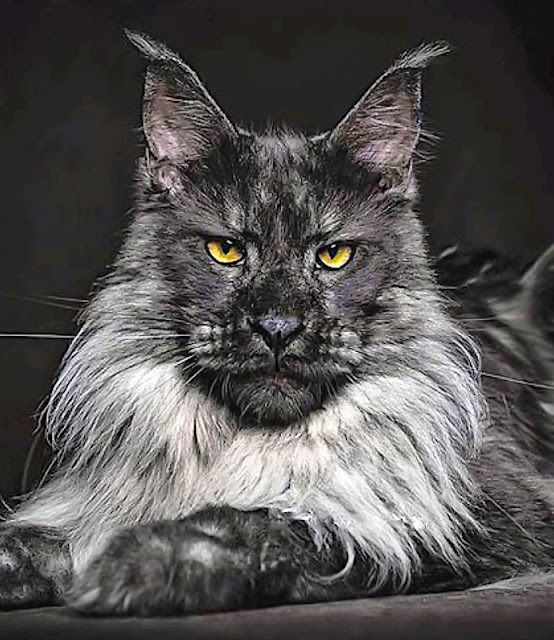



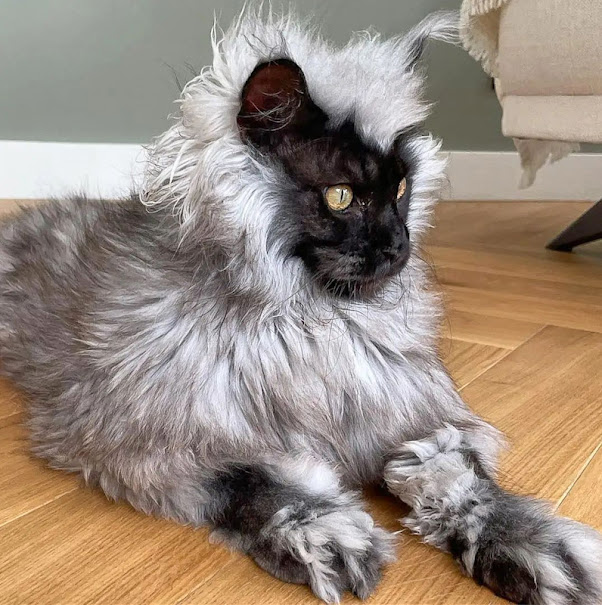

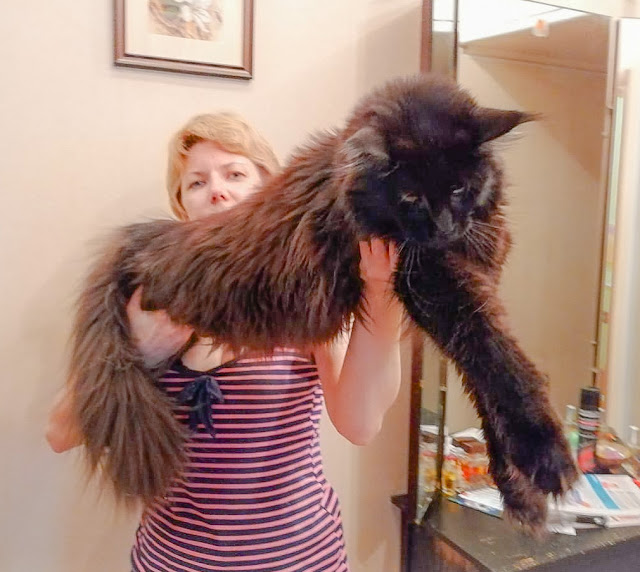
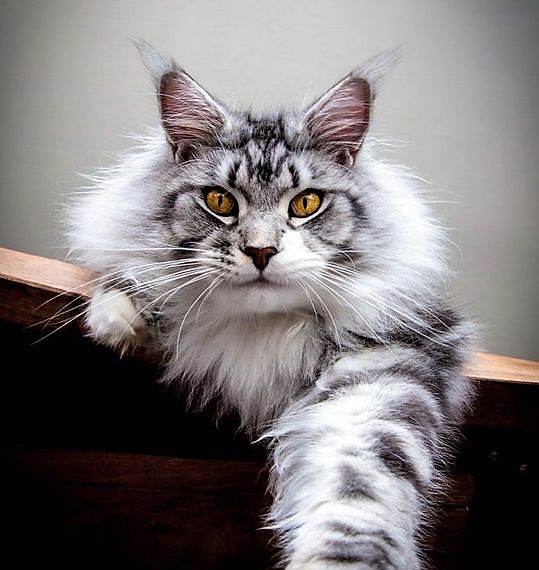
Comments
Post a Comment
Please share your Maine Coon experiences.